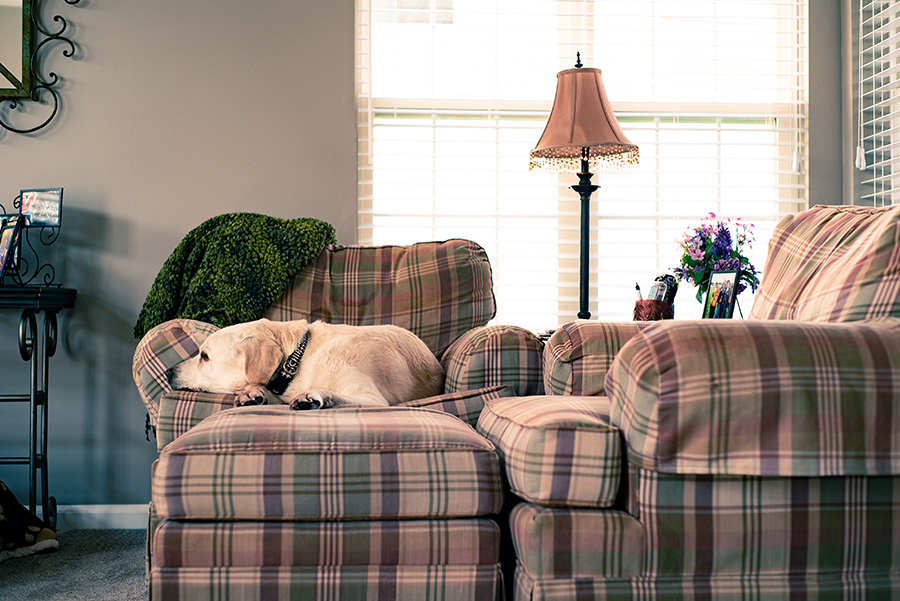My dog/cat is getting slower in their old age- Is this arthritis? What should I do?
Arthritis literally means ‘inflammation of the joint’ and it is a very broad term that encompasses varying levels of degenerative joint disease.
Dogs and cats are similar to people in that most joints are composed of two or more bones covered in a layer of normal articular cartilage. These bone endings are enclosed with joint fluid within a joint capsule. Joints are designed to allow normal motion without pain.
Stress on joints can occur from congenital abnormalities, abnormal conformation, disease or injury. When any of these occur there can be excessive wearing or the articular surface (cartilage), changes in the underlying bone and thickening of the joint capsule. When all of these are combined, motion can become restricted and even painful.
Mild levels can cause only slight changes with some animals ‘warming out’ of their clinical signs, whereas major abnormalities can render our pets lame and painful and unwilling to move or exercise.
Most cases are gradual in onset but should not be confused with other ailments that can cause our pets to slow up. If you are concerned your pet might be getting slower in their old age always get them thoroughly checked out first to ensure other disease processes aren’t responsible for their signs. A thorough history and physical examination can usually locate sore joints but radiographs (x-rays) are sometimes required to confirm the diagnosis and assess the severity of changes. That way we can get a better idea of treatment options that may be available to your pet. Sometimes a simple blood test or urinalysis will be performed before you pet starts on some medications.
Just like in human medicine there are a multitude of drugs (western/ancient and even herbal) that can be used to alleviate the signs of arthritis. Medications can be used to reduce joint swelling and inflammatory mediators, help repair joint cartilage and ensure healthy joint fluid. Acupuncture is also being used with positive results in many animals suffering with arthritis. All of these can help to make a joint less painful and move more effortlessly.
Simple things that can be done at home if arthritis is causing a problem in your beloved pet are to:
- Ensure bedding is soft, supportive and raise off cool flooring
- Ensure that controlled exercise is encouraged if able- i.e. swimming, lead walks etc.
- Ensure your pet is within an adequate weight range for their breed- this could mean some simple dieting that will make your pets life more enjoyable.
If any of the above clinical signs sounds like your pet- a trip to your local vet sounds in order. Like most things ‘prevention is always better than a cure’ and getting your pet on the right medication earlier can improve their overall outcome. Not to mention ensure that other disease processes aren’t the cause behind a slowing pooch or feline friend.






